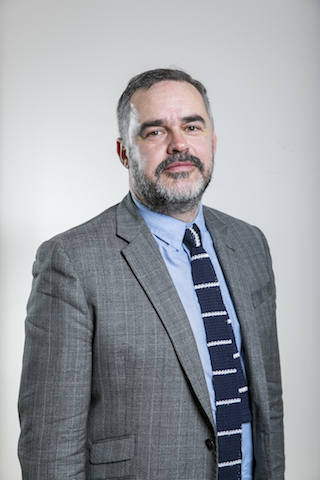Introducing the new-look MiP Members’ Summit
We’re refreshing our annual gathering – to give members a bigger say in setting MiP’s priorities and more time to network and support each other.

The basic one-day format has remained fundamentally unchanged. From the start, we eschewed a motion-based delegate conference. Plenary sessions with ever more important speakers – including health ministers and both the current NHS chief executive and his predecessor – have covered as wide a range of healthcare management and policy issues as could be decently squeezed in. We have been able to engage many system leaders publicly and directly on the issues affecting health and care managers. Health minister Philip Dunne’s promise to delegates last year to “reset the rhetoric about managers” was a good example of the success of this approach.
Shifts and adjustments came over the years as we used feedback and learning to shape the next event. The popular masterclass programme pushed out one of the plenary sessions. Good food and informal networking among like-minded colleagues was popular, so we added an end-of day reception. Last year’s conference was probably our most successful yet.
And yet, and yet…
We’ve had to wrestle with the problem that something was missing. Our decision to avoid policy motions engineered out most of the scope for members to shape, debate and decide the union’s policies and priorities. Q&A sessions and electronic voting have not made up for it. The stellar cast of external speakers has tended to crowd out the voice of the union’s members. Members and reps who want to build a mutually-supportive community of active members have not found it easy to develop relationships on the day. And the breadth of the agenda has meant sacrificing depth of focus on the issues that are most important to our members, both as employees and managers.
Active members, active union
With these thoughts uppermost in our minds, the national committee have decided conference needs a refresh. To signal the shift we are re-naming the event the MiP Members’ Summit, and this year the theme will be ‘Active managers, active union’.
The summit will aim to support members facing two challenges: system change and severe pressures on health and care organisations. It will address these challenges as they arise in England, Scotland, Wales and Northern Ireland. The programme will support members as employees facing change and pressures on pay, career progression and working environment, and as managers preparing and inspiring their teams and organisations. Priorities and policy will be debated and activism and networks fostered. Critically, the summit will engage employers and partners to make this support a reality in the day-to-day working lives of managers. We will then put ‘Active managers, active union’ into practice at the end of the summit with a lobby of MPs at the House of Commons.
In the next few months we’ll ask you through our annual survey and elsewhere to tells us about the issues, themes and ideas you want to talk about.
Here’s an example of what the summit could do. As I write this column we await the Government’s response to the 2017 report from the NHS Pay Review Body. It seems likely that another inadequate 1% pay award, well short of inflation, will be the result. Ending the public sector policy, especially via industrial action, is not on the cards. But does this mean we give up and go home? A strategy of maximising pay through use of existing flexibilities and proper grading practice, delivered locally with our allies, could bring concrete gains for our members at a time of tight finances.
Related News
-

Strange ways, here we come
Creating a ‘neighbourhood NHS’ will demand a different mindset, unfamiliar ways of working and difficult decisions on finances and staffing. Middle managers as well as senior leaders will play a big part in making it happen, writes Nigel Edwards.
-

Labour’s reforms: a mixed bag for managers
Ahead of the ten-year plan, Wes Streeting and NHS leaders have been sketching out some ideas for NHS reform. Jon Restell and Rhys McKenzie explain what these initial proposals could mean for managers.
-

Jon Restell’s Leading Edge | Giving managers legitimacy is the key to making reform work
The false trade off between the frontline and everybody else has become a deep-seated belief in a two-tier workforce. The health secretary needs to unite all NHS staff and give managers permission, encouragement and the tools they need to get his reforms off the ground.